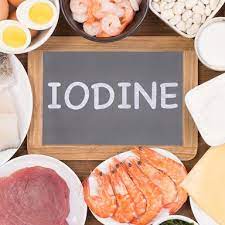
Breaking News
 Team USA Freestyle Skiers Express 'Mixed Emotions' and 'Heartbreak'...
Team USA Freestyle Skiers Express 'Mixed Emotions' and 'Heartbreak'...
 The Safety Cult is Going to Kill Us All
The Safety Cult is Going to Kill Us All
 10 Things I Learned From the Epstein Files
10 Things I Learned From the Epstein Files
 He's EXPOSING the truth about SSRI's and Anti-Depressants, and they are P*SSED
He's EXPOSING the truth about SSRI's and Anti-Depressants, and they are P*SSED
Top Tech News
 How underwater 3D printing could soon transform maritime construction
How underwater 3D printing could soon transform maritime construction
 Smart soldering iron packs a camera to show you what you're doing
Smart soldering iron packs a camera to show you what you're doing
 Look, no hands: Flying umbrella follows user through the rain
Look, no hands: Flying umbrella follows user through the rain
 Critical Linux Warning: 800,000 Devices Are EXPOSED
Critical Linux Warning: 800,000 Devices Are EXPOSED
 'Brave New World': IVF Company's Eugenics Tool Lets Couples Pick 'Best' Baby, Di
'Brave New World': IVF Company's Eugenics Tool Lets Couples Pick 'Best' Baby, Di
 The smartphone just fired a warning shot at the camera industry.
The smartphone just fired a warning shot at the camera industry.
 A revolutionary breakthrough in dental science is changing how we fight tooth decay
A revolutionary breakthrough in dental science is changing how we fight tooth decay
 Docan Energy "Panda": 32kWh for $2,530!
Docan Energy "Panda": 32kWh for $2,530!
 Rugged phone with multi-day battery life doubles as a 1080p projector
Rugged phone with multi-day battery life doubles as a 1080p projector
 4 Sisters Invent Electric Tractor with Mom and Dad and it's Selling in 5 Countries
4 Sisters Invent Electric Tractor with Mom and Dad and it's Selling in 5 Countries
How Iodine Deficiency Increases Your Risk for Chronic Illnesses

Iodine is essential to your health. Unfortunately, data collected by the U.S. National Health and Nutrition Examination Survey has revealed a significant drop in median urine iodine values.1 The median iodine level measured in urine samples was 320 micrograms per liter (mcg/L) between 1971 and 1974. By 1988, it dropped to 145 mcg/L. Surveys taken in the years since show levels have stabilized, except in pregnant women whose median urine level dropped further to 125 mcg/L.
Many people don't know they need to consume a little iodine each day to maintain healthy levels of this essential micronutrient. Your body uses iodine across several organ systems, but it is most commonly known to synthesize thyroid hormones that regulate nearly every bodily system. Several thyroid hormones secreted by your thyroid gland are transported throughout your body where they control your metabolism and energy production.2
This means that every cell in your body depends on the production and function of thyroid hormones. Your thyroid gland is under the control of your pituitary gland that is located at the base of your brain. In turn, the pituitary gland is under the control of your hypothalamus. In other words, there are several steps needed to identify low thyroid hormone levels and to tell your thyroid gland to begin secreting more.
A 2017 study published in the British Journal of Nutrition3 evaluated the iodine levels of cow's milk and milk alternatives in search of a potential reason for this growing iodine insufficiency.
Milk Substitutes Are Low in Iodine
Researchers from the University of Surrey evaluated the iodine content in 47 milk alternatives and compared those levels to cow's milk. The researchers included almond, soy, coconut, rice and hazelnut milk alternatives, but excluded products marketed specifically for infant consumption.4 They discovered the majority of brands did not have adequate levels of iodine as compared to cow's milk. Most contained only 2% of that found in cow's milk.



